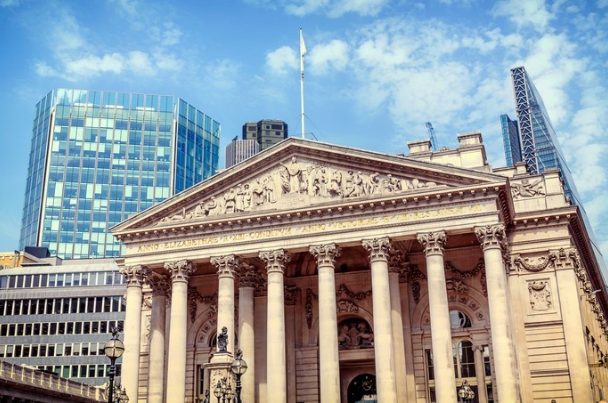The committee voted 9-0 as it judged that an increase in the Bank’s base rate by 25 basis points was warranted at this meeting.
Earlier this week, a bridging lender warned that an increase in the base rate could create an environment of "greater caution" in the property market.
The MPC said it continued to recognise that the economic outlook could be influenced significantly by the response of households, businesses and financial markets to developments related to the process of EU withdrawal.
This increase in the bank rate is the first time that the rate has been over 0.5% since 2009.
It follows the increase to 0.5% in November 2017.
Leading figures in the specialist finance industry – including the bridging, commercial and buy-to-let sectors – have voiced their opinions on the implications of the rate increase.
Paresh Raja, CEO at Market Financial Solutions, said that since interest rates increased from the record low of 0.25% to 0.5% in November last year, there had been strong predictions that a further rate increase would follow in the months soon after.
“However, rising inflation coupled with stagnant economic growth in Q1 2018 put such a move on hold.
“Now, following the steady growth of the UK economy over the summer months, the Bank of England has today taken the bold step to increase the base rate of interest to 0.75% – the highest it has been in nearly a decade.”
Toni Smith, chief operating officer at PRIMIS and PTFS, added: “Brokers need to be engaging with clients to ensure they are prepared and financially able to adjust to the new rate implications.
“It is also the ideal time for brokers to speak with clients who are approaching the end of their fixed rate, or who have already reverted to their lender’s SVR, to ensure they have access to the most competitive deals still available.”
Ludo Mackenzie, head of commercial property at Octopus Property, said that this decision was significant, yet unsurprising.
“While the residential and commercial property sectors – particularly in London and the South East – continue to face challenges, stakeholders should be in a robust enough position to stomach a 0.25% increase and small, well-signposted steps should be welcomed.
“Yes, there will be winners and losers, but over the longer term it is to be expected that rates should normalise; something that is in the interest of a properly functioning economy.”
Kevin Roberts, director at Legal & General Mortgage Club, said that although today’s decision may not have been a huge surprise, interest rate levels remain close to historical lows and any further rise should be gradual.
- Assetz Capital investors don't expect base rate rise in next three months
- Rate rise could create environment of 'even greater caution'
- Nine out of 10 brokers predict base rate rise
“For any borrowers concerned about how this will affect their monthly mortgage repayments, now is the time to seek advice about fixing their rates for the future.”
Jonathan Sealey, CEO at Hope Capital, said that the long awaited interest rate rise had finally happened.
“While borrowers on variable rate mortgages will notice the increase, the economy needed the rise in rates which have remained at unprecedentedly low levels for an extended period of time.
“The 0.25% rise will have a minimal effect on specialist borrowers.
“Cost of funds will not have risen for most lenders, certainly not for private lenders, and so bridging and other specialist rates are likely to remain the same, affected more by competition than by any decision by the Bank of England.”
Jonathan Samuels, CEO at Octane Capital, claimed that by raising rates, the Bank of England had arguably put its reputation before the welfare of the average British household.
“While a quarter per cent increase won't take home finances to breaking point, it will add to the pressure at a time when confidence is already low.
"The Bank of England's hope is that this hike will be a shot across the bows to overly indebted consumers, and there is some logic in that.
"But the timing of this rate rise – coming in the shadow of outright politico-economic uncertainty – is less logical.”
James Newbery, investment manager at British Pearl, said that rates may have gone up, but for Britain’s beleaguered savers, this quarter per cent rise was still a major damp squib.
“Inflation continues to erode people’s money in real terms, and this negligible uptick won’t be enough for savers to pop the champagne corks.”
Max Lehrain, COO at Relendex, said the increase was a significant moment but added: "For savers, this change should act as a wake up call as it is not likely to have a material impact on their investment meaning that those stuck in standard savings accounts are still missing out.
"This is in large part down to the rate of inflation far outstripping interest rates, even with today's increase.
"In simple terms this means that if your savings earn 0.75% interest they are being eaten into by the effects of inflation."
Matthew Wyles, chief executive at Hampshire Trust Bank, said that since the last time the base rate was higher than 0.5% homeowners and property investors had enjoyed a period of dead flat, ultra-low interest rates, unprecedented in modern times.
“Base rate rises are rarely good news for property values, but this increase is particularly significant for markets which have become chronically addicted to cheap money.”
Benson Hersch, CEO at the Association of Short Term Lenders (ASTL), added: “Today’s announcement that interest rates are rising will, as expected, have a major impact on longer-term lenders, as they may feel compelled to raise rates.
“This will affect exit routes for short-term loans, but unless there is an expectation of further increases in the medium term, I don’t expect rate rises to affect short-term lenders.”




Leave a comment